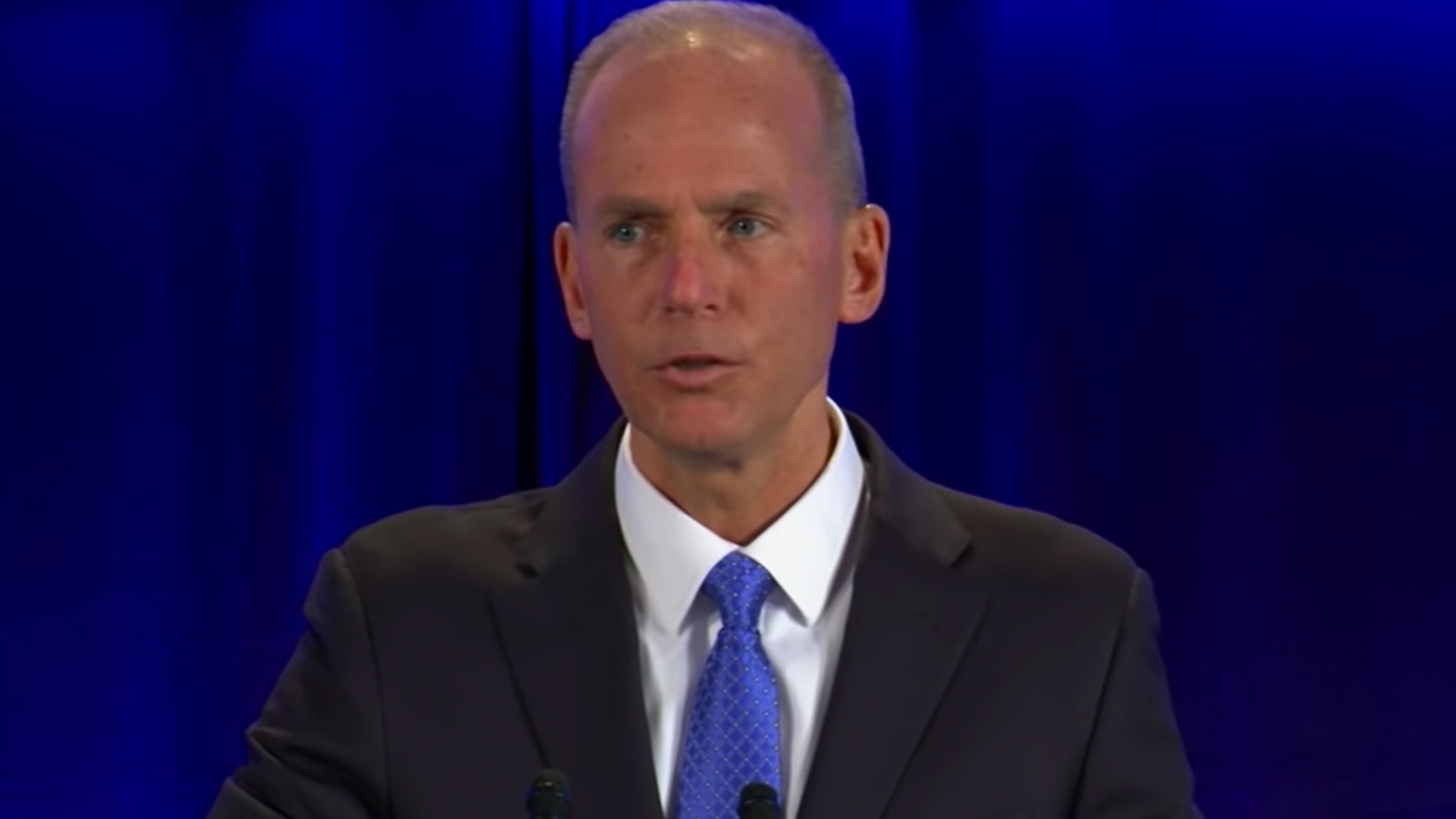Stay Up to Date
Submit your email address to receive the latest industry and Aerospace America news.
Boeing CEO and president Dennis Muilenburg today defended the certification of the 737 MAX, saying he has a “great amount of confidence” in the FAA regulations that gave Boeing a large role in the certification of its MAX jets.
Passenger flight “is the safest form of transportation in the world, and I give a lot of credit to that to the regulatory process the FAA has put in place, which includes delegated authority,” Muilenburg said during remarks at the Bernstein Strategic Decisions Conference, an annual investors gathering in New York, according to a livestream of the event.
Muilenburg was responding to a moderator’s question about the FAA certification process. The FAA has come under fire for allegedly allowing Boeing to “self-certify” parts of its aircraft. The FAA disagrees with that term.
“The FAA has never allowed companies to police themselves or self-certify their aircraft,” an FAA spokesman told me.
Under the Organization Designation Authorization, or ODA, the FAA can “streamline certification” by delegating employees of private companies to sign off on many parts of an aircraft’s design. However, the FAA has the final say.
Nevertheless, changes to the certification process are not out of the question. Boeing is “supporting a number of independent reviews into the certification process,” Muilenburg said. “Any learnings from those we intend to roll into the certification process, not only for the MAX” but for other aircraft as well, he added.
Acting FAA Administrator Daniel Elwell told a congressional panel earlier this month that employees of private companies are only permitted to inspect and certify parts of the aircraft that do not serve “core safety functions.”
Granting an ODA “isn’t something we do lightly,” Elwell told lawmakers. “To be granted an ODA is a privilege that is earned.”
The FAA must recertify the MAX before airlines are permitted to fly the planes again in the U.S. This time, the software implicated in the Lion Air and Ethiopian Airlines crashes, the Maneuvering Augmentation Characteristics System, or MCAS, won’t be assessed under an ODA. Boeing will submit an updated version of the software to the FAA. Muilenburg said Boeing is “making clear and steady progress” on the update but did not give a timeline for when the software would be submitted.
Investigators have found that in both crashes, MCAS was erroneously activated by faulty readings from angle-of-attack sensors, metal vanes on either side of the fuselage that measure the angle between the aircraft and the oncoming air flow. MCAS forced the nose of the plane downward in each case, and the pilots could not regain control.
About cat hofacker
Cat helps guide our coverage and keeps production of the print magazine on schedule. She became associate editor in 2021 after two years as our staff reporter. Cat joined us in 2019 after covering the 2018 congressional midterm elections as an intern for USA Today.
Related Posts
Stay Up to Date
Submit your email address to receive the latest industry and Aerospace America news.




